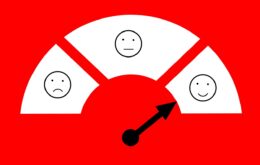“The single best predictor of a candidate’s future job performance is his or her past job behavior.”
“How do we know this is true? Because it’s been proved in thousands of actual job situations for more than two decades. Interviews that probe for past behavior have been found to be more reliable than ones that focus on personality traits, such as ‘I’m dependable,’ or ‘I’m hardworking,’ or even, ‘You can count on me.’ And hiring decisions based on actual behavior are far more accurate than those based on gut feeling.”
“What many successful interviewers have found is that the way in which a person handled a specific situation in the past gives you valid information about how that person will approach similar situations in the future. If a person worked well with customers in the past, he or she will most likely be effective with customers in the future. If the person has had trouble communicating well in the past, you can predict that he or she will continue to have communication problems in the future.”
“This is the foundation for behavior-based interviewing. Once you understand this concept, you can plan to ask the kinds of questions that will give you the information you need to make good hiring decisions.”
— From “Interviewing: More than a Gut Feeling,” Richard S. Deems, Ph.D.
In my last blog post, “You’re Not the Person I Hired! Five Reasons Your Employment Interview Process Fails, I identified reasons why traditional interviewing just doesn’t work. I also promised to share what does work, and that is behavioral interviewing. Behavioral interviewing is a structured interview process where questions are focused on inquiring about a candidate’s past performance.
Behavioral interview questions are tailor-made to the position you’re seeking to fill. By looking at the current position and identifying key skills and characteristics needed to be successful in the job, you create questions that help you find that “right fit” candidate. The more you customize your questions to the skills needed in your position, the more effective your questions will be.
Here are some examples:
Communication
- Give me a specific example of a time when a coworker criticized you in front of others. How did you respond? How has that event shaped the way you communicate with coworkers now?
- In your past interactions, how do you ensure that someone understands what you are saying?
- Tell me about a time when you had to present complex information. What did you do/say to make it clear to others?
- Tell me about a time in which you had to use your written communication skills in order to get across an important point. What techniques did you use to ensure your point was received as you intended?
Decision Making
- Give me an example of a time you had to make a difficult decision.
- Describe a specific problem you solved for your employer. How did you approach the problem? What role did others play? What was the outcome?
- Sometimes big decisions take time to make. Tell me about a time when you were pressured to make a quick decision, but you took your time to make the decision and it paid off.
Planning and Organization
- Describe a situation when you had many projects due at the same time. What steps did you take to get them all done?
- How do you determine priorities in scheduling your time? Give me an example.
- We’ve all been in situations where something just “slipped through the cracks.” Tell me about a time when this happened to you and how you handled it?
Flexibility
- Describe a time where you were faced with problems or stresses that tested your coping skills.
- Describe a time when you put your own goals aside to help a co-worker understand a task. How did you assist him? What was the result?
- Tell me about a time when you had to re-prioritize quickly to focus on a new, pressing task. What did you do and how did it affect you?
Leadership
- Tell me about a time when you made a significant impact on a project by taking a leadership role.
- Give me an example of when you involved others in making a decision, even though you could have made that decision yourself.
- In your past positions, how have you helped a new team member assimilate into his/her job duties and your team.
Time Management
- Tell me about a time when you didn’t meet a deadline. What did you fail to do that caused you to miss the deadline? What did you learn from the experience?
- Tell me about a time when you effectively prioritized your activities to complete a project by your deadline.
Again, these are just sample questions you might ask. However, they should give you an idea how to phrase behavioral-based questions. Now your task is to go back and assess the position for which you’re hiring AND identify key skills and attributes that are required for success in your organization. Then, write behavioral-based questions that will help you find that “right fit” employee!






